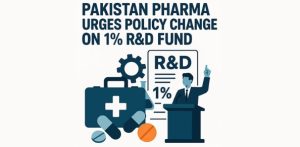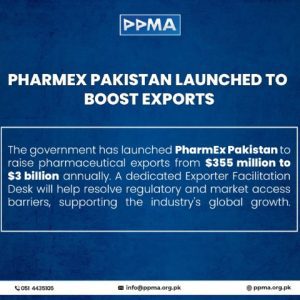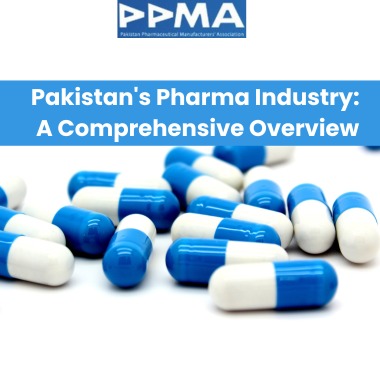Pakistan Pharma Industry plays a vital role in national healthcare delivery. With rising demand, the pharmaceutical market in Pakistan continues to expand rapidly. The country now focuses on self-sufficiency in medicine manufacturing. This growth ensures accessibility, affordability, and economic stability. Moreover, key reforms by the Pakistan Pharmaceutical Manufacturer Association (PPMA) show promising impact. Let’s explore how this thriving sector drives national progress.
Structure and Scope of the Pharmaceutical Market in Pakistan
Overview of Local M edicine Manufacturing in Pakistan
The foundation of Pakistan’s healthcare lies in domestic production. Local medicine manufacturing in Pakistan meets 90% of national pharmaceutical needs. This reduces dependency on imports and strengthens supply chains.
- Over 700 licensed pharmaceutical units are active
- Majority serve domestic markets, with a rising export trend
- Industry contributes around 1.5% to Pakistan’s GDP
Government policies aim to boost production standards and research. The industry shows resilience, especially in post-pandemic recovery phases.
PPMA’s Role in Growth of Pharma Sector in Pakistan
The Pakistan Pharmaceutical Manufacturer Association (PPMA) acts as a unifying body. It ensures quality control and regulatory compliance across the board. PPMA has pushed for policy reforms to enhance sectoral competitiveness.
- Promotes global certification standards like WHO and GMP
- Encourages R&D collaboration across academia and pharma firms
- Advocates for tax reforms and infrastructure development
Such measures reflect PPMA’s long-term vision for sustainable sectoral expansion.
Regulatory Landscape and Industry Compliance
Understanding Pakistan Pharmaceutical Regulations
Strong regulation ensures drug safety, affordability, and public trust. Pakistan pharmaceutical regulations align with global healthcare compliance systems. Agencies like DRAP supervise manufacturing, labeling, and pricing.
- Regular inspections and licensing procedures are now digitized
- GMP compliance is mandatory for all active units
- Bioequivalence and pharmacovigilance protocols are enforced
This framework enhances Pakistan’s reputation in international pharma markets.

Public-Private Synergy for Pharmaceutical Market Expansion
Effective public-private partnerships are key to regulatory compliance. PPMA and government bodies conduct joint seminars and training. These efforts upgrade quality benchmarks across the pharmaceutical market in Pakistan.
- Health awareness campaigns involve private sector input
- Academic institutions now offer pharma-specific certifications
- Global export norms are integrated into local SOPs
This cooperation accelerates growth and improves investor confidence.
Pharmaceutical Exports from Pakistan
Export Contribution of Medicine Companies in Pakistan
Medicine Companies in Pakistan are increasingly focusing on foreign markets. Pharmaceutical exports from Pakistan reached over $300 million in 2023. Top destinations include Afghanistan, Africa, and the Middle East regions.
- High demand for generics, injectables, and oncology products
- Exporters target halal markets with certified products
- PPMA promotes Pakistan’s image in global pharma events
These trends illustrate the untapped potential in regional and international markets.
Trade Infrastructure and Export Facilitation
To ease pharmaceutical exports, trade bodies improve logistics and compliance. Initiatives like PharmEx Pakistan provide exporters with needed support. Export facilitation includes:
- Standardized documentation and barcoding systems
- Online portals for customs clearance
- Export insurance schemes for SMEs
These developments help reduce bottlenecks and improve efficiency.

Investment and Innovation in Pakistan’s Pharma Sector
Pharmaceutical Investment Opportunities Pakistan: New Horizons
Investors view the Pakistan Pharma Industry as a high-return sector. Opportunities exist in APIs, biologics, and vaccine production. Local investors benefit from reduced import bills and export gains.
- Free economic zones attract multinational companies
- Low operational costs compared to regional peers
- Government offers tax and utility incentives
This surge positions Pakistan as a future manufacturing hub.
Research and Development in the Pharma Sector
Innovation is key to sustainable pharmaceutical advancement. Public and private sectors invest in developing new formulations. The Central Research Fund encourages academia-industry collaboration.
- New molecules and biosimilars are under development
- AI tools improve drug discovery timelines
- Clinical trials are gaining regulatory support
Continued R&D will keep Pakistan competitive in the evolving global market.
Human Capital and Pharmaceutical Training Programs
Challenges in Pakistan’s Pharma Sector Workforce
Skilled human capital remains a challenge for the Pakistan Pharma Industry. Educational institutions need to align with industry demands.
- Lack of hands-on training programs for graduates
- Gaps in regulatory and quality control knowledge
- Limited exposure to international practices
Addressing these gaps is crucial for sector growth.
PPMA’s Role in Workforce Capacity Building
PPMA has initiated training programs to improve skill levels. Collaborations with universities ensure standardized, export-focused education.
- Regulatory compliance training modules
- Scholarships for pharma engineering and management
- Webinars on emerging global pharmaceutical trends
These initiatives strengthen the future of pharma companies in Pakistan.

Pharma and Public Health: National Impact
Affordable Healthcare Access Through Local Production
Medicine companies in Pakistan help reduce treatment costs. Local production ensures uninterrupted supply of essential medicines. This supports the healthcare infrastructure and improves national health outcomes.
- Price controls are regulated to protect consumers
- Emergency drugs are prioritized for public hospitals
- Pandemic response efforts highlight domestic industry strength
Thus, pharma development is directly tied to better healthcare access.
National Policy Support and Government Initiatives
Multiple policy initiatives support pharmaceutical sector development. The government encourages import substitution and backward integration.
- Drug pricing policy linked to regional affordability
- Support for packaging, excipients, and raw material sourcing
- PPP models for building pharma industrial zones
These policies show long-term commitment to pharma sector growth.
Key Reports Validating Growth Potential
Below are recent reports that highlight growth and reforms:
- Business Recorder: Pakistan Pharma Sector Surges in 2024
- Pharma Vision 2030 – Government of Pakistan
- TDAP Pharma Sector Analysis Report 2023
These resources offer credible data and strategic insights.
Pharma Regulatory Reforms for Efficiency & Transparency
The Pakistan Pharmaceutical Manufacturer Association (PPMA) welcomes Transparency International Pakistan’s recent call to improve regulatory processes in the pharmaceutical sector. PPMA sees this as a constructive step toward enhancing efficiency, speeding up product approvals, and ensuring timely patient access to quality medicines. A more transparent and streamlined framework will strengthen public trust and support the growth of Pakistan’s pharmaceutical industry on a global scale.
Conclusion: The Road Ahead for Pakistan Pharma Industry
The Pakistan Pharma Industry stands at a transformative stage. From compliance to export and from innovation to public health, its role is multidimensional. Guided by PPMA and backed by policy support, the sector is set for sustained growth.
To summarize:
- Local medicine manufacturing in Pakistan drives healthcare access
- Pharmaceutical exports from Pakistan unlock foreign markets
- Innovation and R&D increase competitive advantage
- Public-private efforts enhance regulatory compliance
With continued reforms and investment, the future of pharma companies in Pakistan looks highly promising. Stakeholders must act with urgency and coordination to seize these opportunities.


